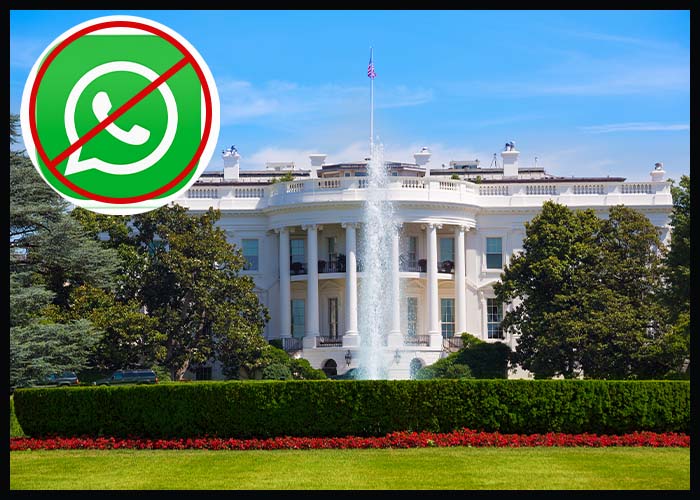U.S. House of Representatives Bans WhatsApp Over Security Concerns, Urges Staff to Use Alternatives
Staff members in the U.S. House of Representatives have been officially barred from using WhatsApp on government-issued devices, according to a report by Axios. The decision was announced in an internal email from the House’s Chief Administrative Officer (CAO), citing growing concerns over the app’s security practices.
In the email, the Office of Cybersecurity labeled WhatsApp as a “high-risk” platform, pointing to a lack of transparency in how the app safeguards user data, the absence of stored data encryption and potential vulnerabilities tied to its use.
As a result, House staff are no longer allowed to install or use WhatsApp, either through the mobile app or web browser, on any government-issued devices. Instead, they’ve been directed to more secure alternatives such as Signal, Microsoft Teams, Amazon Wickr, and Apple’s iMessage and FaceTime.
Meta, WhatsApp’s parent company, quickly pushed back against the ban. On X (formerly Twitter), Meta communications director Andy Stone defended the app, emphasizing its use among lawmakers and the strength of its privacy protections.
“WhatsApp messages are end-to-end encrypted by default,” Stone noted. “Not even WhatsApp can access them. That’s more security than most of the apps the CAO has approved, many of which lack this feature.”
We disagree with the House Chief Administrative Officer’s characterization in the strongest possible terms. We know members and their staffs regularly use WhatsApp and we look forward to ensuring members of the House can join their Senate counterparts in doing so officially. https://t.co/QsUPKaiAmU
— Andy Stone (@andymstone) June 23, 2025
End-to-end encryption ensures that only the sender and intended recipient can read a message, even if it’s intercepted during transmission. Apps like Signal, Wickr, iMessage, and FaceTime also use this encryption by default. Microsoft Teams, however, requires users to manually enable end-to-end encryption.
While the move aims to tighten cybersecurity across government devices, the ban has reignited debate over how different communication platforms handle user privacy—and what defines true digital security in Washington.

